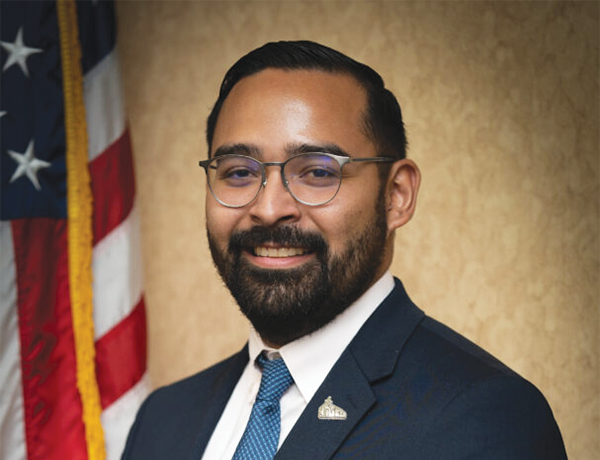The city of Mission paid its economic development corporation last Friday $2.779 million it incorrectly withheld during the summer of 2023 and has launched a review of its finance practices aimed at investigating why that money was withheld and developing policies to avoid improper finance decisions in the future.
The city also for the first time this week  answered questions about the situation in detail.
answered questions about the situation in detail.
Despite becoming a point of controversy in town since the Progress Times ran a story on the withheld funds in early December, the city hadn’t previously said much about what led to the funds being deferred.
The discovery of the deferred funds has, frankly, been a thorn in the city’s side for a month.
The whole affair has spurred controversy, criticism and concern — all of it very public.
Despite the hubbub, the city and the Mission Economic Development Corporation agree that the situation’s been rectified and that the funds not being transferred didn’t negatively impact operations of either entity.
The situation has, however, indicated lapses in the city’s financial controls that appear very much lacking, lapses city leadership have pledged to fix.
FUNDS DEFERRED
Assistant City Manager Andy Garcia traced in an interview Tuesday the genesis of the whole MEDC fund saga to June of 2023.
At the time, he said, the city had a number of projects it was on the hook for financially. It was also tight on ready cash to fund them with.
“It was really an overextension,” Garcia said.
Faced with the prospect of project delays should cashflow not be increased, Garcia says someone at the city decided to defer sales tax payments to the Mission Economic Development Corporation.
That decision affected sales tax reported between April and August totaling about $2.7 million.
So who made the choice to defer the payments?
Garcia was reluctant to throw out a name — he says part of the point of an ongoing internal review is to establish that fact conclusively.
“That’s what we’re evaluating right now. So we are getting a little bit more depth and into the weeds as it pertains to the transfer process and what exact policies and procedures, processes, are in place…” he said.
Garcia did say City Manager Randy Perez wasn’t aware of the deferral in June; he doesn’t believe the council knew about it.
The decision, Garcia said, likely would have originated in the city’s finance department.
So is anyone liable to face consequences over what happened?
Perez very nearly exited the city in the wake of the discovery of the deferred payments, though he decided to stay on and committed to making corrective action.
Communications obtained through open records show MEDC staff speculated about whether the deferred funds would land Finance Director Angie Vela in hot water, though she remains in her post and hasn’t factored into the council’s discussions on the funds in public.
Mayor Norie Gonzalez Garza didn’t necessarily rule out the possibility of some sort of personnel consequences Tuesday, though she said she felt the city may very well find its own policies at procedures to be at fault in the end.
She particularly pointed to outdated job descriptions and the lack of communication about the deferrals.
“In my opinion, there was no communication, and that’s what we should put in place — I feel,” Garza said. “That everybody should be informed of these types of issues. The upper administration as well as the council and myself, as the mayor. So I think those are the types of controls that I’m hoping to put in place: that there needs to be more communication.” 
DEFERRAL DISCOVERED
Communication about the deferrals started in earnest at the city last month.
The MEDC discovered that the city had deferred paying the funds in late November and alerted the city.
The city’s executive leadership team held its first meeting on the funds on December 1, Garcia said.
Internal correspondence from the city and the MEDC shows staff trying to understand what exactly had happened and find a way to remedy the situation over the beginning of December.
Doing so appears, at times, to have been a struggle. In particular, the total sum the city owed the MEDC tended to fluctuate, both in public comments and internal communication.
Garcia describes that confusion as not necessarily being a surprise. Getting a fix on the funds was akin to trying to hit a moving target, he said, detailing at length the path those funds take before they wind up in the MEDC’s coffers.
“It’s intricate,” he said.
The city simultaneously had to come to an understanding about what it owed the corporation, find a way to pay it back promptly and develop a plan to fix lacking internal controls that led to the issue.
On December 8, then-city council candidate and now-former MEDC board director Noel Salinas voiced concerns about the funds to the Progress Times.
That led to a spat of political mudslinging and gave the situation a public relations component.
The city aborted one special city council meeting in mid-December, but discussed corrective action related to the situation later in the month.
At that meeting, Perez presented council with a bevy of new internal financial controls and presented it with a way to pay back money.
Council ultimately declined to do so, naming a two-council member finance committee to weigh the situation.
Perez almost-retirement threatened to complicate the city’s resolution effort, but he stayed on and the city moved toward mitigating the situation.
CORRECTIVE ACTION
The city paid the MEDC its $2.7 million on January 5.
It needed city council, however, to approve a budget amendment for $1.9 million of those funds.
 On Monday, the Mission City Council voted 4-1 to reallocate American Rescue Plan Act funding to pay off that portion of the debt.
On Monday, the Mission City Council voted 4-1 to reallocate American Rescue Plan Act funding to pay off that portion of the debt.
Councilman Ruben Plata voted against doing so.
“I did feel uncomfortable in transferring funds. I did feel uncomfortable. I feel like our finance department and our management needs a little bit more transparency and I hope that we review that,” Plata said at the meeting.
The city didn’t earn itself particularly high marks for communication during December.
It — and the MEDC — usually proved reluctant to talk about the situation. Rumors flared and the narrative that emerged in the press generally wasn’t particularly cohesive.
The city’s taken pains in recent weeks to dispel the notion that funds went missing. They weren’t missing, per se — they just weren’t where they were supposed to be.
Garcia says not talking was intentional rather than evasive: the city wanted to present the public with a solution before they started talking about the problem.
At this point, if the MEDC fund transfer situation isn’t entirely resolved, it certainly seems to have been addressed.
The MEDC’s been paid off. The city and the corporation appear to be on the same page about things. The threat of a leadership shakeup doesn’t appear to be imminent. The city has finally addressed why this all happened in the first place, and it says it’s investigating that situation and how to avoid it recurring.
The city isn’t expecting the unexpected lump sum of cash it had to pay the MEDC this month to generate any significant issues or project delays, Garcia said.
So what does all of this mean in the end?
The deferred payments will be reported to the bond market and could hurt the city’s reputation there, though Garcia doesn’t think that will be a major issue.
“We’ve resolved the concern already,” he said.
Cash flow issues led to the deferral happening in the first place.
Garcia says the city bit off more than it could chew financially regarding projects over the summer. He doesn’t predict the city being in the same situation again, pointing to an increase in the city’s tax base.
“There’s been a lot of growth in the city,” he said. 
Mostly, Garcia said, the outcome of the whole debacle is likely to be adding financial policies that the city lacked — he particularly pointed out its lack of a transfer process.
He described several controls and policies that the city is or will consider implementing, building off the list Perez told council about last month.
Garcia expects the city’s ongoing finance management review to identify and address more potential procedural improvements.
“It’s something that did occur, but it’s something that’s a learning experience for the city, because we’re able to implement those best practices and move forward,” he said.
















